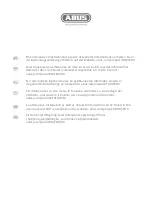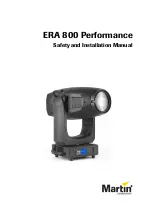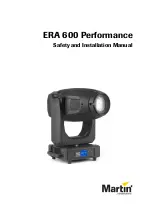
24
10
Configuration commands
The VTR4 can be configured via the Ethernet connection which allows data
entry through the unit's web pages using UDP or TCP/IP.
10.1
Ethernet communication
For TCP, commands from a host should be sent to destination port 30313.
Replies are sent to destination port 30312. For UDP, commands from a host
should be sent from source port 30312 to destination port 30313.
Replies are sent from source port 30313 to destination port 30312.
10.2
RS232 communication
When using RS232, the COM port should be set to 115200 baud, 8 data bits, no
parity, 1 stop bit, and no handshaking.
10.3
Command structure
Communication consists of commands sent by the host (controlling PC). All
output generated by the command is returned in reply UDP or TCP/IP packets.
The last character sent is
>
('greater than' symbol). Once this is received, the
host knows that the command has been completed.
It is recommended that the host waits for the
>
symbol before sending the next
command. UDP communications are not guaranteed to arrive, so the host
software must be able to cope with lost messages.
Using the
GT
command, a host can request that a message is sent to it whenever an
error occurs.
Several commands can be put into one command line by separating them by a
semi-colon (
;
). A carriage return character should be sent to terminate the
command line. The VTR4 sends any replies to the commands and then sends a
>
character to indicate that the command line has been completed.
Commands comprise a code of two letters followed by the parameters (if any)
needed for the command. Spaces in the commands are ignored.
Содержание PULSESTAR VTR4
Страница 1: ...PULSESTAR VTR4 Installation Guide Issue 006...
Страница 2: ...For your notes...
Страница 38: ...34...











































